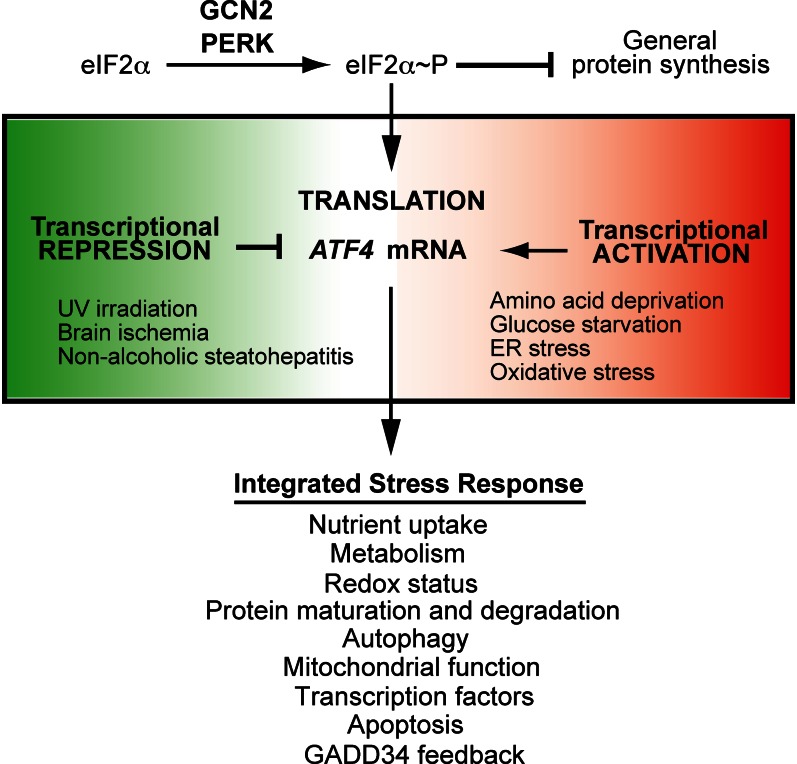Figure 4.
Transcriptional regulation of ATF4 enables differential expression of integrated stress response (ISR) genes. In response to nutritional deprivation and other diverse stress conditions, phosphorylation of eukaryotic initiation factor (eIF) 2α by general control nonderepressible (GCN) 2 or PKR-like endoplasmic reticulum kinase (PERK) represses global translation. Additionally, phosphorylation of the α subunit of eukaryotic initiation factor 2 (eIF2α~P) preferentially enhances the translation of ATF4. Increased levels of the ATF4 transcription factor triggers the transcription of a gene expression program collectively referred to as the ISR. Expression of ATF4 is also subject to transcriptional regulation. Transcriptional activation in response to the indicated stress conditions serves to provide high levels of mRNA available for preferential translation during eIF2α~P, thus enhancing the ISR. Alternatively, transcriptional repression reduces the levels of ATF4 mRNA available for translation. In this case, there is discordant induction of the ISR, with eIF2α~P reducing global protein synthesis, but low expression levels of ATF4 and its target genes. ER, endoplasmic reticulum.

